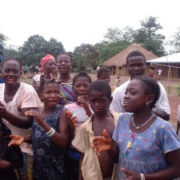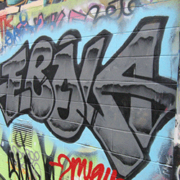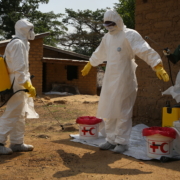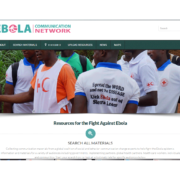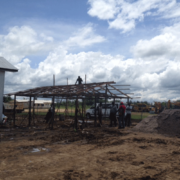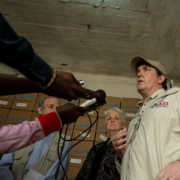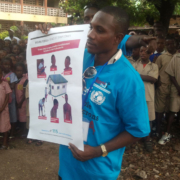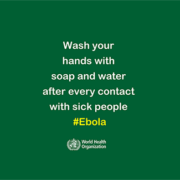Respond Quickly to Ebola with Community Mobilization
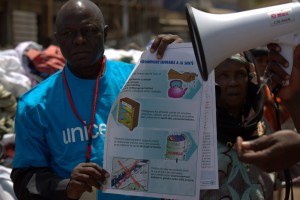
UNICEF and partners took to the streets of Conakry today to combat the Ebola outbreak with information on how to keep families safe and to prevent the spread we distributed soap and chlorine. Courtesy of UNICEF Guinea
At this stage of Ebola outbreak, health communication is important but it must include a heavy social mobilization component if we expect quick results. Looking at all three Ebola countries (Guinea, Liberia and Sierra Leone), we know the rapid spreading of the disease can be attributed to risky behaviors performed by people due to lack of information about the cause of the sickness, denial and rumors.
In some cases, the information delivered was plain wrong, such as in Guinea where people were officially informed at the beginning of the outbreak that Ebola could not be treated. This misinformation prompted people to keep the sick at home, a risky practice that likely contributed to further spread of the disease.
Ebola countries need accurate information about its transmission (human interaction, nonhuman contact). With the right information, we can define key practices to be promoted at the community level regarding prevention and care seeking. Then, we can identify appropriate communication channels to spread this key information.
Knowing that in all Ebola countries people do not always trust the governing bodies, it will be important to identify trustworthy sources of information that are able to convey messages and convince people to act very quickly. A strong community mobilization approach will be needed to collaborate with community leaders who have the power to quickly influence other people.
In Guinea for instance, groups of “wise people” known as “les hommes sages” are located in the capital city to represent the interests of their constituents back home and continually seek resources to contribute to the development of their regions or counties. These groups do not have any political bias and are comprised of political leaders, civil society, religious leaders, women leaders and youth. They can play a key role in Ebola fight, from relaying messages to the constituencies back home to facilitating a dialogue with those who want to air their concerns and respond to questions about Ebola disease. Other influential leaders to be considered are tribal and religious leaders. People listen to them more than they do government appointed leaders. This social mobilization effort should be backed by other communication materials including radio, written materials, mHealth and TV.
Since we know today that all people suffering from Ebola do not die, personal stories from people who cured after suffering from Ebola being presented on TV may help to convince people that early isolation can help to manage and treat the disease. These stories could be part of an overall strategy that also includes community mobilization activities. That is assuming the services and manpower needed are available to take care of the people who then rush to the health facilities.


